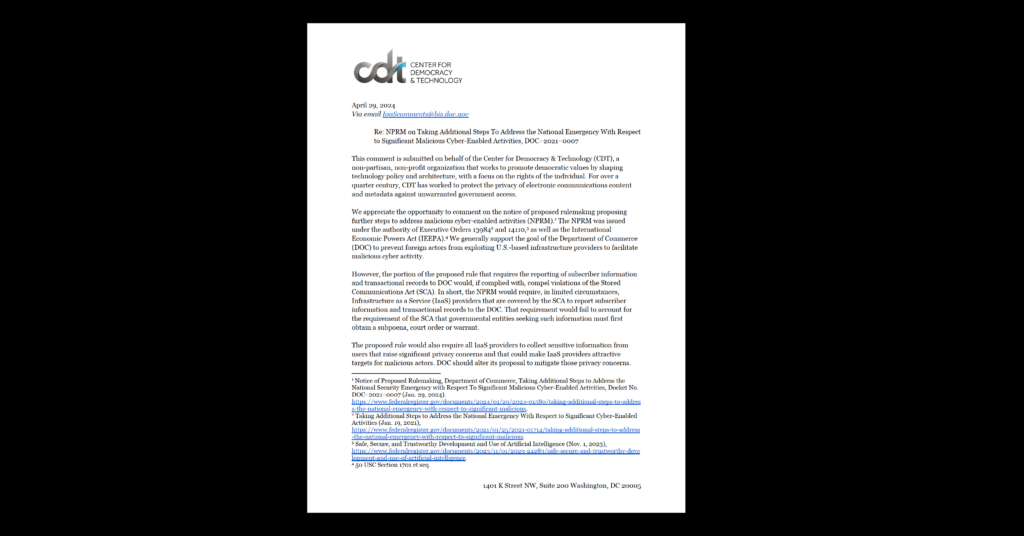CDT Garners IAPP Privacy Leadership Award
CDT today received the 2011 Privacy Leadership Award from the International Association of Privacy Professionals (IAPP). The award was given in recognition of CDT’s consistent commitment to “furthering privacy policy, promoting recognition of privacy issues and advancing the growth and visibility of the privacy profession,” the IAPP said.
CDT President Leslie Harris accepted the award at the IAPP Global Privacy Summit. Harris noted that when CDT was created 17 years ago there were few privacy professionals and no organization, like IAPP, to help support privacy issues in Washington policy circles. Harris said in her acceptance remarks that from the start, CDT has concentrated on two areas: first, the need for collaboration with developers of new technologies and digital services; and second, that privacy should not be an afterthought–or merely a public policy discussion. Rather, it needed to be built into technologies, company practices and industry self-regulation guidelines.
IAPP President Trevor Hughes said CDT “has consistently and effectively been a leading voice for free expression and privacy. We recognize CDT for its tremendous work in building consensus among stakeholders and finding innovative solutions to guild online privacy policy.”
Such work does not happen in a vacuum, nor does it succeed by the work of a single person, organization or coalition. “CDT’s accomplishment’s are by design equally the accomplishments of the whole privacy community,” Harris said. “You are all part of the ‘secret sauce’ that has made CDT’s work on privacy so impactful.”
In presenting the award, IAPP noted several of CDT’s major privacy accomplishments, including:
- Coordinated the Anti-Spyware Coalition, which is widely credited with helping to produce a sharp drop in spyware infection of consumers’ computers.
- Organized the Digital Privacy and Security Working Group that successfully pressed Congress to pass a law protecting the privacy of electronic communications.
- Helped to develop the concept of Do Not Track in 2007 and continue to develop guidelines that will make the concept workable for both companies and consumers.
- Led efforts to compel industry to improve self-regulatory standards for behavioral advertising and have urged the FTC to raise the bar.
- Guided policymakers on the creation of the Children’s Online Privacy Protection Act and balancing the First Amendment rights of older minors while protecting the privacy of young children.
- Was a founding member of the Digital Due Process coalition, which looks to update the rules for government access to email and private files stored in the Internet cloud.
- Served as the leading public-interest voice advocating for privacy-enhancing mechanisms to be built into technical standards.
`


